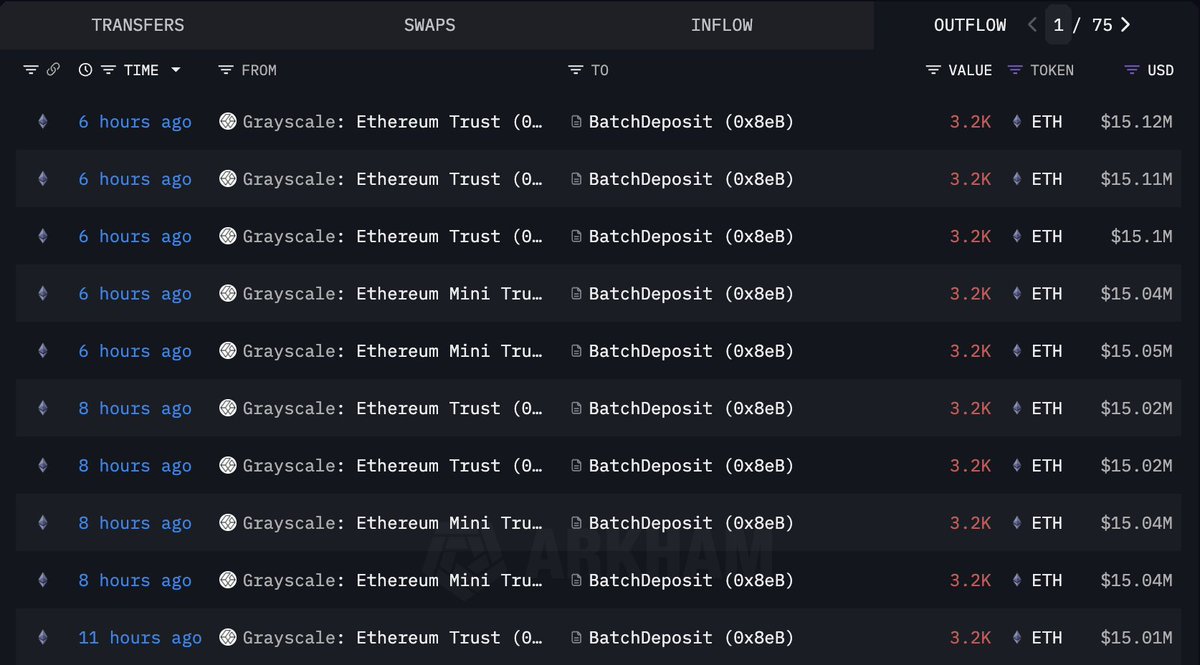Ripple CLO Cites Historical Precedent Against US SEC
A recent social media post by Ripple CLO Stuart Alderoty, targeting the US SEC, has fueled discussions in the crypto community. Alderoty suggests that the U.S. Securities and Exchange Commission (SEC) might face another legal defeat if it moves forward with a lawsuit against OpenSea, treating NFTs as securities. This comes just after a day the agency issued a Wells Notice to OpenSea, sparking backlash and debate over regulatory overreach towards digital assets.
Ripple CLO Cites Historical Precedent Against US SEC
The latest comment from the Ripple CLO revolves around a 1976 ruling where the US SEC decided that art galleries promoting or selling artworks, even with investment motives, do not have to register with the agency as securities dealers. He noted that this precedent could also apply to the OpenSea case, where non-fungible tokens (NFTs) are traded similarly to art rather than financial securities.
In a recent X post, Stuart Alderoty shared a ruling involving Art Appraisers of America. The ruling showed that it was exempt from SEC registration despite selling lithographs with potential investment value. The SEC’s ruling clarified that art sales, even when linked to investment potential, do not come under securities law if galleries do not make a guarantee about resale value or create a market for the artwork.
Meanwhile, this argument, as highlighted by the Ripple CLO, aligns closely with OpenSea’s business model, which focuses on digital art rather than investment vehicles. In addition, this stance could challenge the US SEC’s approach if it pursues litigation against OpenSea, suggesting that NFTs, like traditional art, should not automatically be classified as securities.
SEC Faces Criticism For Its Move Against OpenSea
OpenSea recently said that it has received a Wells Notice from the US SEC. The SEC claimed that some of the NFTs traded on the platform might qualify as securities, which would require OpenSea to comply with stricter regulations.
However, CEO Devin Finzer expressed surprise and disappointment, saying that SEC’s approach unfairly targets artists and creators who use the platform. This regulatory move has ignited broader criticism, with notable voices in the crypto and political spheres speaking out.
For context, US Congressman Wiley Nickel condemned the SEC’s aggressive “regulation by enforcement” strategy, calling it an overreach that undermines trust and transparency in the regulatory process. Nickel urged the agency to collaborate with Congress to develop fair regulations that encourage innovation without stifling the burgeoning digital asset market.
In addition, billionaire Mark Cuban criticized SEC Chair Gary Gensler, accusing him of mishandling regulatory oversight. Notably, the recent comment from Stuart Alderoty and the heavy backlash reflect the growing frustration with the agency’s approach to digital assets.
The debate surrounding the SEC’s move against OpenSea has sparked a heated discussion about the regulatory framework for digital assets. The Ripple CLO’s argument that NFTs should not be treated as securities has gained traction, with many arguing that the agency’s approach is overly broad and could stifle innovation in the space. As the regulatory landscape continues to evolve, it will be important for stakeholders to engage in a constructive dialogue to ensure that the interests of all parties are represented.
Q: What is the SEC’s position on NFTs?
A: The SEC has issued a Wells Notice to OpenSea, stating that some of the NFTs traded on the platform may qualify as securities. The agency claims that this would require OpenSea to comply with stricter regulations.
Q: What is the Ripple CLO’s argument?
A: The Ripple CLO, Stuart Alderoty, argues that NFTs should not be treated as securities, citing a 1976 ruling that exempted art galleries from SEC registration. He notes that this precedent could also apply to the OpenSea case, where NFTs are traded similarly to art rather than financial securities.
Q: What is the reaction from the crypto community?
A: The reaction from the crypto community has been largely negative, with many arguing that the SEC’s approach is overly broad and could stifle innovation in the space. Notable voices, including US Congressman Wiley Nickel and billionaire Mark Cuban, have criticized the agency’s move against OpenSea.
Q: What is the next step for OpenSea?
A: OpenSea has received a Wells Notice from the SEC and has expressed surprise and disappointment at the agency’s approach. The company has not yet indicated how it plans to respond to the notice, but it is likely to engage in a constructive dialogue with the SEC to resolve the matter.










